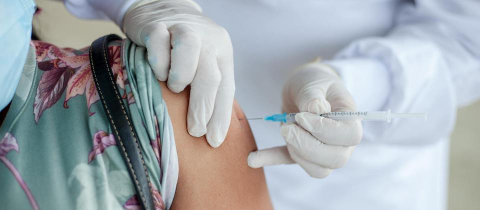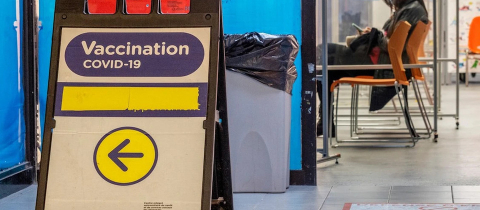This article was originally published in the Montreal Gazette
In recent days, I’ve been getting some questions about something in the daily COVID-19 announcements that has many people worried. It would seem as if the number of vaccinated people getting hospitalized is going up and that they make up the majority of new hospitalizations these days. This is true, but it doesn’t mean what many people think it means. Many have taken it to mean that the vaccines don’t work. But that would be the wrong interpretation. They clearly do.
If you consult the Quebec government’s daily dashboard on the COVID-19 situation, you can get an informative snapshot of where we are in terms of infections, hospitalizations and vaccinations. On Jan. 10, there were 433 new hospitalizations. Of those people, 117 were unvaccinated, 13 had received one dose, 290 had received two doses and 13 were too young to be eligible. On the surface, it would seem concerning that so many vaccinated people are landing in hospital, and even shocking that there are more vaccinated than unvaccinated people. But these raw numbers are misleading. They fail to account for two important factors: the size of the vaccinated population and the age of that population.
To explain, let’s imagine that we have a hypothetical population of 10,000 people where 90 per cent are vaccinated. Now let’s assume that if you are vaccinated you are seven times less likely to end up in hospital than if you are unvaccinated. So for our mathematical experiment, let’s set the hospitalization rate of the unvaccinated population at seven per cent and one per cent for the vaccinated. In reality any numbers you pick will lead to the same conclusion as long as you maintain the 7:1 ratio, which is actually very close to the actual number.
So now, if we imagine that COVID-19 infects everyone in our sample population, then one per cent of our 9,000 vaccinated people will land in hospital. In other words, 90 vaccinated people end up in hospital after being infected with COVID-19 in our theoretical population. Now, among the 1,000 unvaccinated people, if seven per cent end up in hospital then that translates into 70 unvaccinated people being hospitalized.
By just looking at hospitalizations, it would seem that the 90 vaccinated patients outnumber the 70 unvaccinated. They do. But the risk of being hospitalized is unchanged. You are still seven times more likely to be hospitalized if you are unvaccinated.
One factor I have omitted in the above calculations is the effect of age. Because vaccination rates are lower in younger age groups relative to older ones, and because younger individuals are less likely to require hospitalization relative to older ones, you must also adjust for age to get an accurate sense of the difference in hospitalization rates and the protective benefits of vaccines. Once done, the data indeed confirms that unvaccinated people are 7.1 times more likely to be hospitalized than vaccinated people, and 13.8 times more likely to be in intensive care.
Many people are understandably disappointed that the vaccines did not end the pandemic, as many hoped they would. Unfortunately, the Omicron variant is infectious enough and different enough from prior strains that it can still infect people who have received two vaccine doses.
However, it would be wrong to say that the vaccines have failed us. Vaccination, especially after having received a booster, provides very good protection against severe infection and hospitalization. Despite what some people may say to you, the recent hospitalization numbers do not prove that the vaccines are not useful. In fact, they confirm their benefit. Were no vaccines available, we would not be talking about thousands of people in hospital, but potentially tens of thousands needing hospitalization and an overwhelmed health-care system where people would not be able to get the care they needed. The situation would undeniably be worse.







